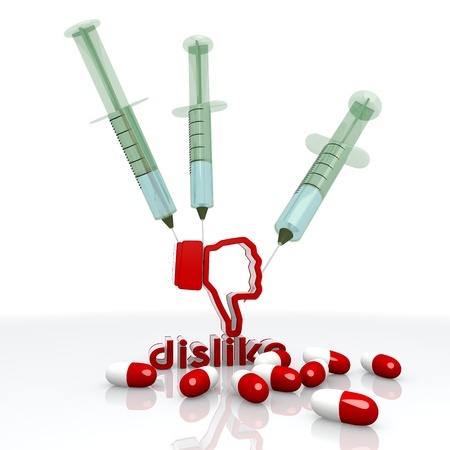Why Pharmaceuticals Are Gateway Drugs
Gateway drugs to more serious substance abuse have often been thought of as just the illegal drugs: marijuana, amphetamines, cocaine to begin, and worse drugs, such as heroin, later.
However, there are other gateway drugs, and these affect a much larger proportion of the population, and are perfectly legal. You probably well know that pharmaceuticals often have side effects that result in the prescribing of further pharmaceuticals.
One of the most common problems I see in my practice is the over prescription of beta-blockers. These are utterly useless drugs. Sure they lower the blood pressure, which is why they’re prescribed. But they do that by weakening the whole cardiovascular system. So much so that at times I have had patients who were then diagnosed with congestive heart failure.
Furthermore, beta-blockers, because they weaken circulation, destroy libido, which then leads to the prescription of Viagra, a drug that has been shown to cause blindness in some men. Of course beta-blockers cause weight gain, for which pharmaceutical corrections are then desperately sought. And perhaps worst of all the beta-blockers cause fatigue, which is then interpreted by an especially incompetent or rushed physician as depression, and an anti-depressant is ordered.
In fact anti-depressants seem to be gaining ground as the treatment of choice for doctors who simply have no idea what to do with the patient in front of them. The doctor’s inadequate understanding of the patient’s health is interpreted as “all in the patient’s head,” which then justifies the prescription of antidepressants. Some illnesses, not yet understood by conventional doctors, are treated this way more than others. Fibromyalgia, chronic fatigue syndrome, Epstein-Barr and Lyme Disease are especially treated with unhelpful antidepressants.
But anti-depressants are not at all innocent. Just the psychological symptoms of them include suicidal thoughts and attempts and anxiety. (Don’t worry; there are more drugs to control your anxiety.)
The first drug opens up one wound, and then as sloppy bandaging of that wound begins, other wounds develop, till there are multiple wounds, and multiple inadequate bandages.
Many times the first pharmaceuticals are prescribed for someone else. According to the 2006 National Survey on Drug Use and Health, published September 2007, every day 2500 teenagers, aged 12 to 17, try a painkiller for the first time. This is often right out of their parent’s medicine cabinet, such as drugs left over from a surgery or simply left unguarded. Teens are finding drugs and taking large amounts so they can get high. In fact for 12 and 13 year olds, prescription drugs are the drugs of choice. For all teens, prescription drugs are second only to marijuana for getting high. Unfortunately, because they were acquired legally, and were prescribed for a family member, kids assume they are safer.
But the problem is that these kids don’t realize that prescribed drugs can be just as dangerous as illegal drugs. So even if your kids would never try street drugs, they may be getting high out of your medicine cabinet.
In the specific case of painkiller abuse, which is the biggest accelerating problem for youth, these are often opioid derivatives. A huge problem with these are the well-known mental impairment from these drugs. But another problem is the severe constipation that such drugs can cause. The rock hard constipation that can result from these drugs is not so easily resolved with fiber, but then may require stool softeners, and leads to accumulated toxicity in the body.
Not Just To Other Pharmaceuticals, But To Street Drugs As Well
Sometimes the prescription or legal drugs are gateway drugs, not just to other pharmaceuticals, but to street drugs as well.
For example, Ritalin and others in the methylphenidate class, such as Adderall, Strattera and Concerta have an identical molecular structure to amphetamines, and although these drugs are designed for the short-term palliation of hyperactivity or inattentiveness in kids (ADHD and ADD), patients never feel that they are permanently healed from these drugs. So if the doctor after some years stops prescribing the ADD drug, the teenager very often ends up on a methamphetamine afterward. There are naturopathic physicians who have had numerous young men consult them in order to break the addiction to both Ritalin and to the secondary addiction to crystal methamphetamines.
Both legally and morally, the pharmaceutical industry and the physicians who carelessly prescribe these drugs should be held accountable for this whole expanded branch of the street drug trade.
One of the main reasons that people come to naturopathic physicians is that they are tired of being on so many drugs, with the side effects and the expense. So one of the main things we as naturopaths do is to taper people off of poorly prescribed drugs. This is usually a gradual process, because some drugs will cause a possibly dangerous rebound effect if stopped suddenly.
For every human ailment there are natural treatments, in fact for more human ailments than drugs can resolve. So consider this option for yourself and your family. Learn more about how we treat cancer at natureworksbest.


